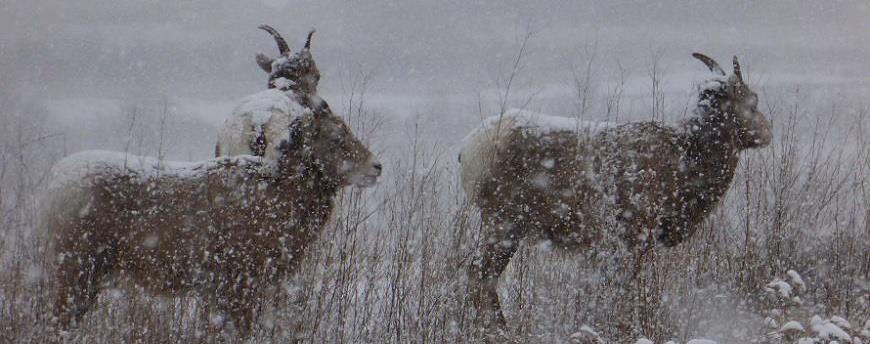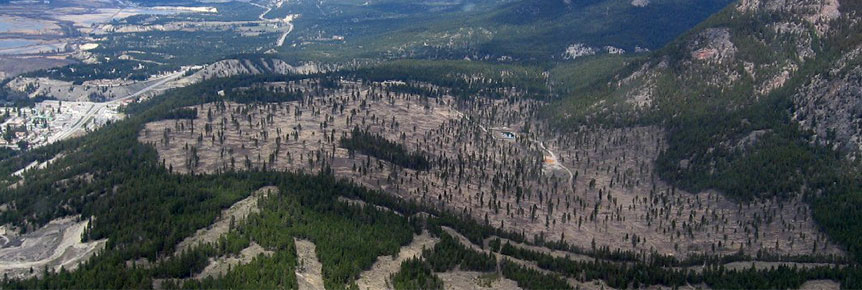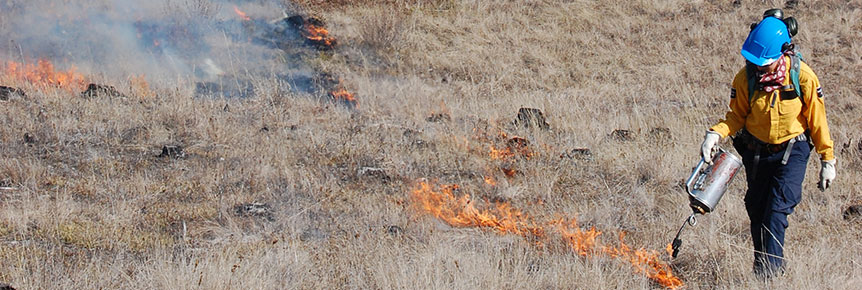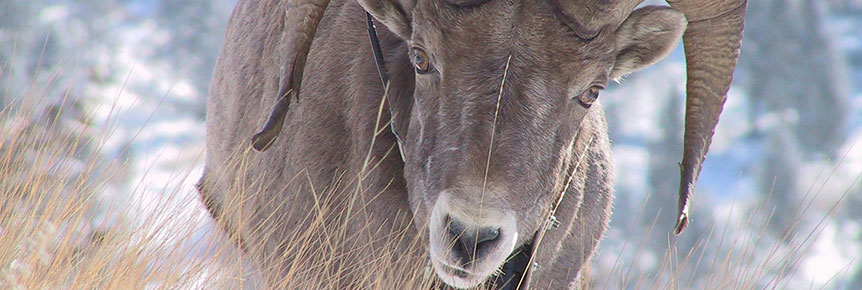
Redstreak Restoration
Kootenay National Park
Parks Canada is restoring and maintaining open forests and grasslands at the south end of Kootenay National Park. This project is part of a larger regional objective to restore fire-dependent ecosystems along the Rocky Mountain Trench.
The goals of the Redstreak restoration project are to:
- restore habitat for Rocky Mountain bighorn sheep on winter range and along spring/fall migration routes;
- restore habitat for American badger (a species at risk) and other grassland species;
- enhance native grass species that have been squeezed out by the forest; and
- reduce the threat of wildfire to Redstreak campground and the Village of Radium Hot Springs

Why restore this area?
The fire-maintained open habitats along the southern edge of Kootenay National Park are vital for bighorn sheep. In the winter, sheep graze on these dry, windswept slopes. In the spring and fall, they travel through the area on their seasonal migration route. This low elevation habitat is disappearing due to forest ingrowth and human development.
Restoration steps
1. Thinning the forest:

- Winter 2002-2003: 114 hectares south of Redstreak campground were mechanically thinned to remove small trees and brush and make the area safe to burn. This area lies next to a block of provincial land thinned in the winter of 2001.
2. Restoring fire:

- Spring 2005: the first prescribed fire was lit in the thinned area. Park staff continue to set low-intensity fires every 5-10 years, mimicking the historic pattern of fire in this area.
- This program of prescribed fire will maintain open habitats for fire-adapted animals and plants such as bighorn sheep, badgers and bunchgrass. It will also reduce the risk of intense wildfires.
- The Redstreak Mountain prescribed fire extends habitat restoration to the upper slopes of Redstreak Mountain.
3. Monitoring success:

- GPS collars on bighorn sheep recorded how they responded to the restoration (2002-2009).
- Remote cameras provide information on animals using the area.
- Vegetation plots monitor which plants are where and how well native species are doing.
See for yourself
Walk the Letwilc7úl̓ecw interpretive trail for a sheep’s eye view of the restored area, or hike up the Redstreak Loop Trail for a panoramic view.
Other links to:
Related links
- Date modified :